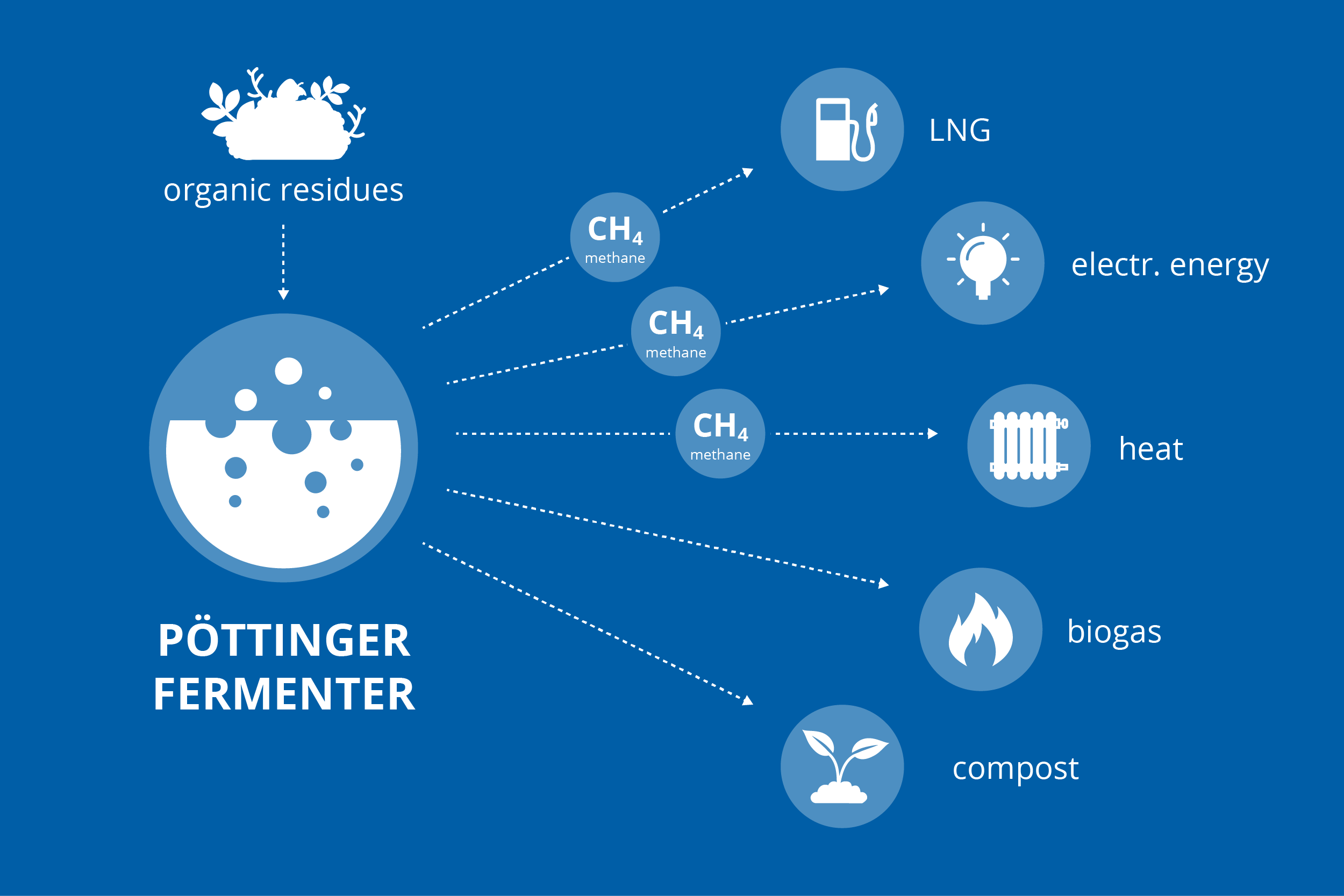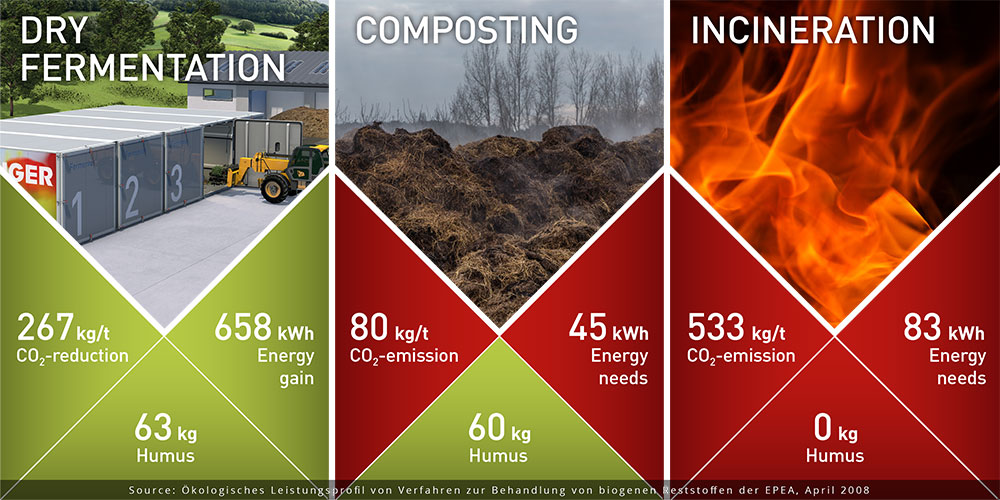Create ecological added value
The sustainable handling of resources and a responsible circle economy are two of the great challenges of our time

The PÖTTINGER fermenter offers the advantage of combining energy extraction and disposal or recycling in a single system.
It is the most environmentally friendly process for the recycling of organic residues and has a consistently positive eco-balance.
In the traditional composting process, methane is emitted in the post-rotting process due to prior fermentation because the digestate is slow to become aerobic. With the PÖTTINGER fermenter process, this is counteracted by an intensive aeration phase with simultaneous collection of the lean gas. The fully fermented material will only transfer to post-rotting once it is aerobically stable.
This solution is therefore ideal in the sense of a circle economy.
Comparison of three recycling methods
Organic residues can be recycled in different ways. In doing so, they differ primarily with regard to their ecological effects.

The combination of energy extraction and composting represents the best solution in the sense of a circle economy and saves a total of 267 kg of CO2 per ton of organic waste. This is the principle that the PÖTTNIGER fermenter uses.
In doing so, the advantages of both recycling methods are combined:
- Bio-gas extraction as a direct substitute for fossil fuels
- good plant-compatible nitrogen and carbon fertilization
- Humus formation for CO2 reduction in the soil
With the traditional open composting, the process results in around 80 kg of CO2being released into the atmosphere for each ton of organic waste. The subsequent utilisation of the compost for fertilising and for forming humus as well as the return of nutrients can be considered positive in the overall balance.
Around 30% of the organic waste in Austria (internationally generally higher) is disposed of via waste combustion systems. This causes emissions of 533 kg of CO2 for each ton of organic waste. The remaining slag must be dumped and the nutrients contained within it are often lost altogether. In addition, a fossil fuel firing is needed.
